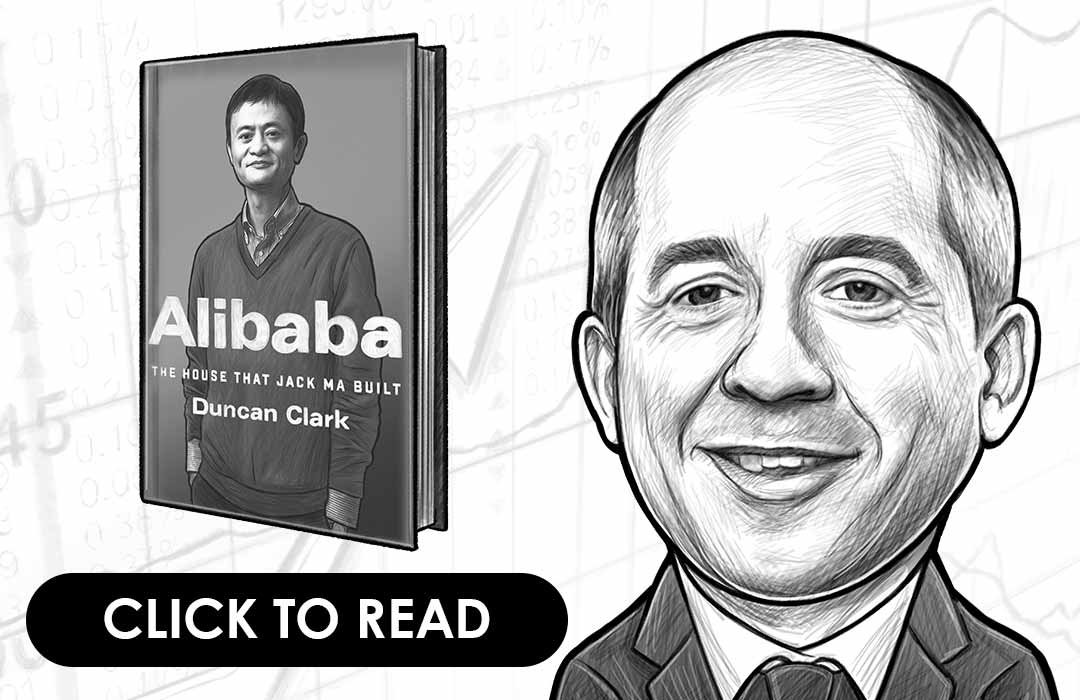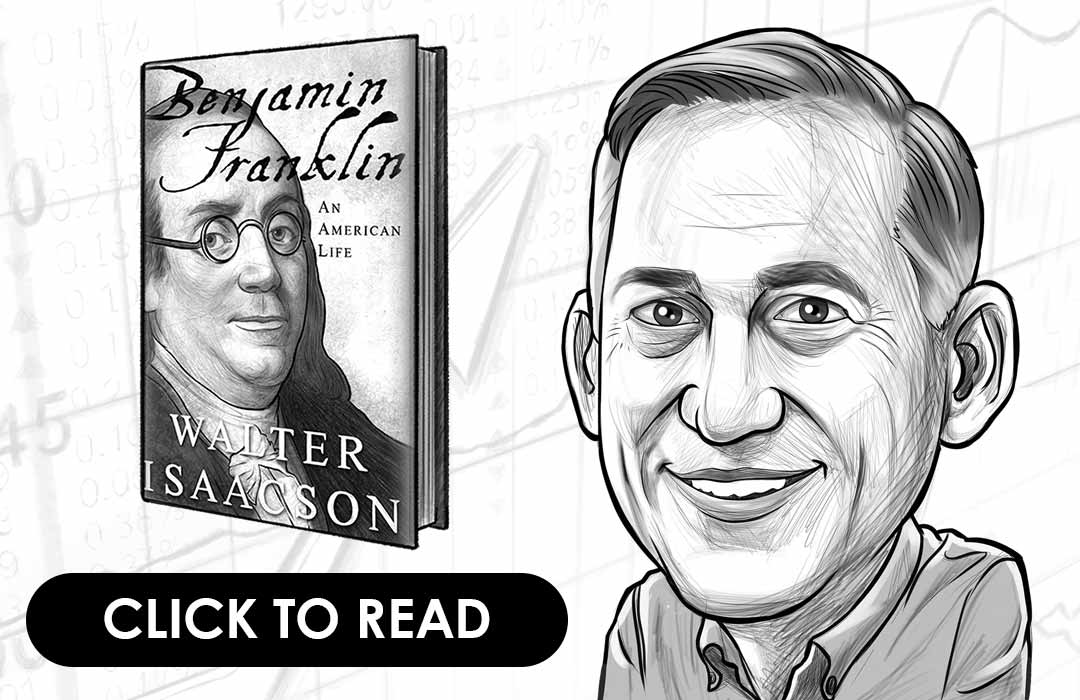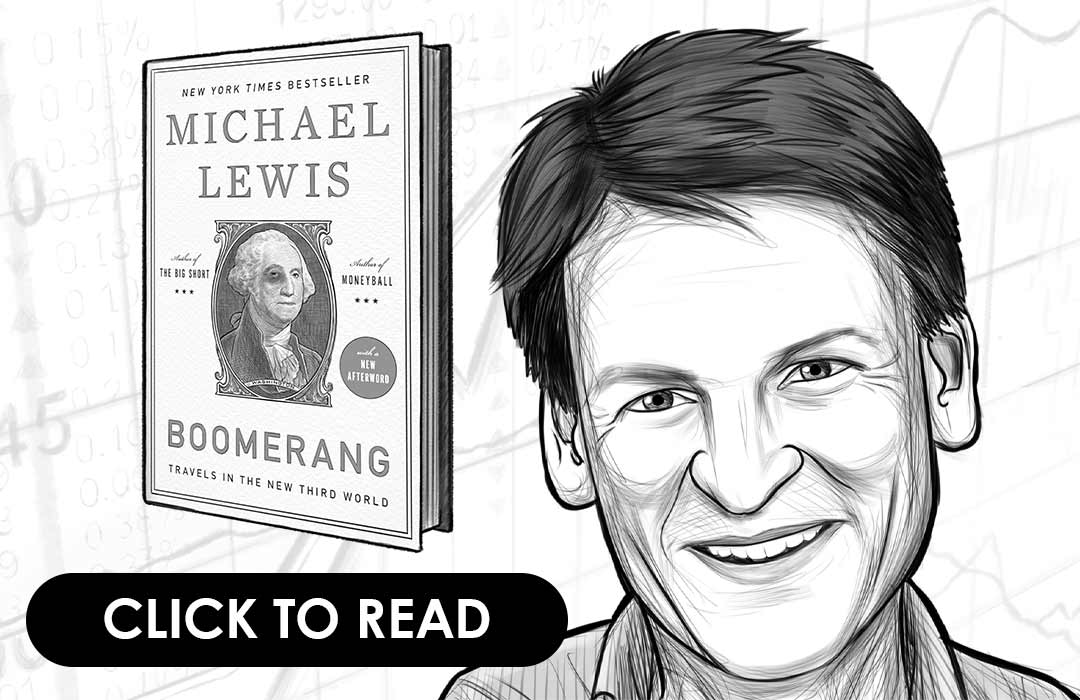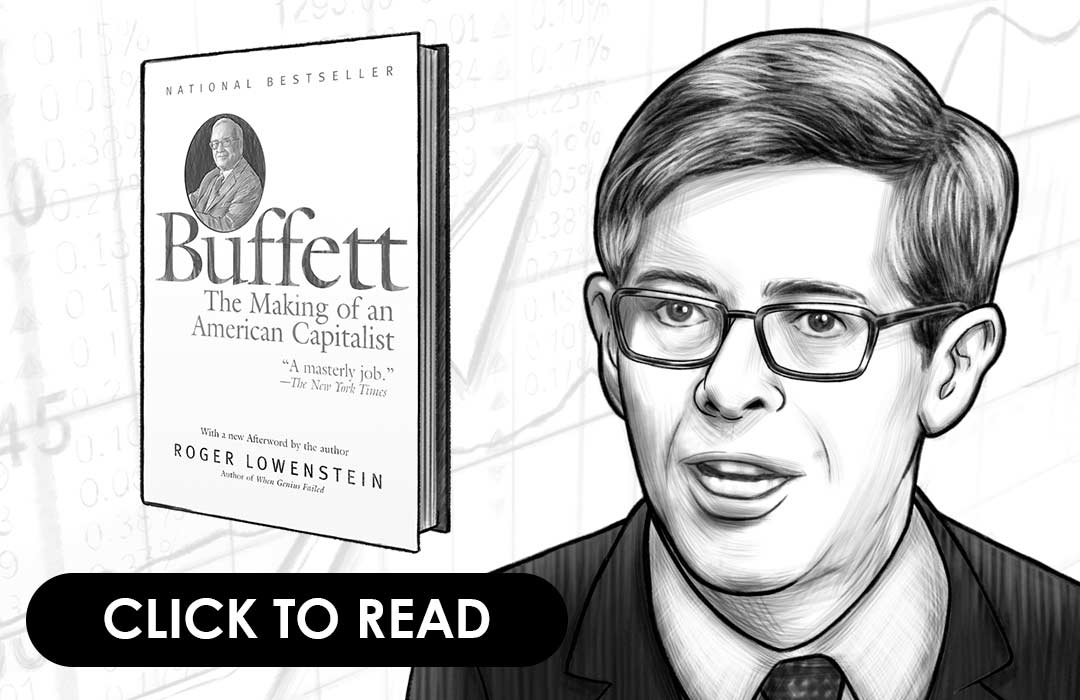An Executive Summary Of Personal History
By Katharine Graham
CHAPTER 1
In this first chapter, Katharine offers a personal account of her ancestors, especially her father. Eugene Meyer achieved a lot at a young age even when circumstances didn’t favor him. By the time he was 32 years old, he had also set up a brokerage company. As an impulsive man, he decided to marry Agnes Ernst the moment he set eyes on her, and they married two years later. Eugene and Agnes had their own differences, but Katharine was born within just a couple years.
Get smarter about valuing businesses in just a few minutes each week.
Get the weekly email that makes understanding intrinsic value
easy and enjoyable, for free.
CHAPTER 2
Eugene Meyer had amassed a vast fortune of about $40-$60 million, but although money was nice, he was more interested in public service. According to the “map of life” he had created, he planned to indulge in serving the public until he was 60 and then retire. At this point of time, the World War I broke out and, Agnes, although away from Eugene, was constantly worried about him. Eugene also played a role in reforming the NYSE and took up several tasks to help people. Agnes joined him in Washington while the children, including Katharine, were left under Powelly’s care. Since Agnes didn’t participate in her children’s care, they grew more devoted to Powelly.
CHAPTER 3
Eugene Meyer tried to buy the Post in 1929, but his offer of $5 million was swiftly rejected. He tried again and offered $3 million, but that was rejected too. However, since the owner managed the company very poorly, Eugene managed to buy it in 1933 for a mere $825,000 in an auction. His primary intention was to rescue the newspaper from debts that amounted up to $500,000. Katharine, at that point, was a junior and she heard about the purchase as she was preparing for her boards.
CHAPTER 4
Katharine joined Vassar in 1934 without any forethought since her sister and brother were stepping out into the outside world. Katharine felt like a misfit since she couldn’t comprehend anything around her. In fact, she had trouble buying clothes for herself as she had never done that earlier. In Vassar, she did her best to survive, but for the first time in her life, her political views were slowly differing from that of her parents.
CHAPTER 5
Katharine requested her father to send her to the London School of Economics since her brother Bill had done the same, but her father rejected her idea since he believed that she, just like her brother, was too immature. She had to make an instantaneous decision, so she chose Chicago University and was promptly sent there. Although she felt lost, she made quite a few beer‐drinking friends who spent quite a lot of time discussing things with her. Like any other college girl, she was also invited to join sororities but the invites came with great difficulty since she was half‐Jewish and she turned them all down.
CHAPTER 6
When Eugene took Katharine to San Francisco, she fell in love with the city so much that she told Eugene that she’d give up her job in Chicago if he got her a job there. Eugene took her up on her offer, and she got a job in San Francisco News ‐ a small newspaper. The pay was only $21, and although Katharine found it a tad difficult to get adjusted in the city, she quickly grew ambitious and adapted to her work.
CHAPTER 7
Katharine had spent time discussing matters related to the Post with her father. When she got back to Washington after five years, she began working in the editorial department rather than working as a reporter. She became so involved in the Post that she even attended the FDR press conference, and after a while, she was in charge of editing letters. It was at this point that she gelled with the reporters and strengthened her position at the Post.
CHAPTER 8
In this chapter, Katharine describes her romance with Philip Graham, the son of Ernest Graham. Katharine’s older sisters had separated from their suitors since their parents’ disapproval mattered to them, but Katharine was different and wasn’t influenced by their thoughts. Although her father‐in‐law didn’t approve his son marrying a Jew, she began to like him too. Everything looked perfect and the young couple was all set to lead a great life, but Phil’s drinking revealed that something was amiss.
CHAPTER 9
After Katharine and Phil had got married, Katharine was adamant that she’d remain a housewife, which shocked Phil. They also hired Mattie Jeffress to get some help with their household chores. With Phil’s allowance of $3600 and Katharine’s allowance amounting to $1500, they also enjoyed a wedding present of $500. Katharine’s domestic skills were retarded to an extent with Mattie’s interference, but she learned to cope with it.
CHAPTER 10
When Phil left to Maryland to join the Army Air Corps, Katharine was desolate, but she joined him later at Atlantic City and became a camp follower. Although Phil disliked the sadism, negligence and ineptitude rampant in the army, he reveled in their camaraderie. Later, he was sent to South Dakota and Katharine joined him there too. Understandably, it was a tad difficult for both of them to adjust to a frugal lifestyle after leading luxurious lives and Katharine grew more frustrated by the day because of her shorthand and typing.
CHAPTER 11
Katharine and Phil shifted to a serious lifestyle somewhere in 1946. Phil was appointed as Eugene’s deputy and learned the ropes of handling a newspaper business. On the other hand, Katharine found Donny a bit difficult to handle, and had to rely on Lally, who was only three years old, for assistance. As an adaptive woman, Katharine learned to adjust to her husband’s responsibilities, and with their social circle expanding quickly, she had quite a few things on her plate.
CHAPTER 12
By 1948, the Post was losing money heavily. Their building located on E Street was ridden with roaches and desperately needed repair. Despite these obstacles, Russ Wiggins – managing the news department – did a spectacular job, but a tight budget often crippled him. Ben Bradlee – who would become famous later – joined the Post but he quit and joined Newsweek. However, although they had problems, Phil rose to the occasion and proved his worth as a leader and editor. Later, they even bought Times‐Herald as a shortcut to the future, and though the company lost money the first year, it was a definite step towards the Post’s glorious future.
CHAPTER 13
After a few years, Katharine and Phil became so busy in their lives that they had no time for anything else. Therefore, they began spending more time at Glen Welby – a happy retreat for the entire family. Katharine enjoyed the low‐key life and was happy with her family. It was there that they enjoyed recreational activities such as fishing and hunting, and even had two artificial lakes named Lake Philip and Lake Kay. Katharine reminisces that this was the period when everything seemed perfect for her in her world, but later it all came crashing down. Phil’s increasingly aggressive attitude coupled with him belittling her in front of their friends was something Katharine did not think about.
CHAPTER 14
Phil’s work and other issues caused so much stress that he finally broke down sobbing. Katharine could do nothing other than comforting him. Terrified about his condition, they spent their days in Glen Welby, but his talks of suicide popped up every now and then. Katharine spent a great deal of her time talking to him but she also felt the need to escape. Dr. Farber – the doctor who treated Phil – broke all the rules of psychiatry, but managed to instill the fear of drugs in Phil.
CHAPTER 15
Phil’s health improved a bit and he enjoyed his friendship with President JFK. In fact, even the president’s lieutenants including Bill Walton and Robert McNamara became their family friends. By 1961, Katharine was ambivalent, but she noted Phil’s frenetic tendency while purchasing Newsweek. Although he rejected the idea twice earlier, he communicated with Ben Bradlee who put him in touch with the editor of Newsweek, and the negotiations began at a frantic pace.
Get smarter about valuing businesses in just a few minutes each week.
Get the weekly email that makes understanding intrinsic value
easy and enjoyable, for free.
CHAPTER 16
By 1962, Phil was having trouble trusting his own judgment, but he continued to work. Later, Katharine and Phil flew to Los Angeles to finalize a service that integrated the Post with the Los Angeles Times. While vacationing, Phil seemed a little more balanced and Katharine tried to convince herself that he was finally alright; however, his increasing mood swings made it apparent that there was a long battle ahead of her.
CHAPTER 17
With stories of Phil’s seemingly rational behavior floating around, Katharine grew increasingly disturbed because he was completely different with her, but Phil’s doctor constantly assured her that it was just the symptom of the disease. Finally, Katharine had to acknowledge the fact that he was indeed sick, and thanks to the assistance of the Reston family and Luvie Pearson, they began to think about the paper’s future. Phil, struggling with manic depression, had also learned the art of manipulating people and successfully forced his doctors to allow them to go to Glen Welby. However, he had different things on his mind, and before anybody could stop him, he had shot himself with a gun.
CHAPTER 18
Katharine felt alone and lonely, and her mother decided that a cruise would certainly help her stop thinking about things for a while. Everybody expected her to remarry, but she was emphatic that she would never remarry, and would focus solely on work. The Post needed her attention, and therefore, she became the president of the Washington Post in 1962.
CHAPTER 19
After grieving for a year, Katharine plunged herself into work, and this was the time when she went through a learning phase. Understandably, she made mistakes at first by ignoring invaluable workers, but she quickly understood to appreciate and focus only on an individual’s performance. By adopting the Montessori method that compelled a person to learn by doing things, she took trips with her editors and performed her tasks first-hand.
CHAPTER 20
Ben Bradlee assisted in hiring people from different papers, and since three newspapers had succumbed, it was easy for him to hire and fill at least fifty positions. The budget was raised up to $7 million and Bradlee successfully inspired people around him. Both Katharine and Bradlee became comfortable with their partnership, and were happy to watch Post grow.
CHAPTER 21
Katharine learned a lot more business and even had articles written about her. In fact, one article stated that she believed in accepting responsibility rather than throwing her weight around, and she agreed with that. However, she had more expectations for what she wants to achieve. She also felt like she was pretending to be someone else, and had too much insecurity, but they all stemmed from the fact that her generation of women was often led to believe that men were superior to them.
CHAPTER 22
Katharine focused entirely on Watergate, and although Nixon had some problems with many newspapers including the Post, there wasn’t any animosity between them. He became the president in 1969 amidst speculations rife about him. Upon his insistence, Katharine invited Henry Kissinger for lunch, and it was the beginning of a long, fulfilling friendship for Katharine.
CHAPTER 23
The Watergate affair had both positive and negative effects on the Post. Shockingly, a break‐in at the DNC headquarters was dismissed by Nixon’s spokesman as a burglary attempt. Post editors and police reporters including Al Lewis investigated the matter. Lewis also reported the story byline immediately as Carl Bernstein and Bob Woodward contributed background information.
CHAPTER 24
As the Post was engaged in the worst phase of the Watergate scandal, Katharine had mixed emotions that ranged from sorrow – her dear colleague had just passed away ‐ and happiness since the efforts of the Post was finally recognized. Even Pulitzer jurors generously rewarded them, but the Watergate issue wasn’t yet over.
CHAPTER 25
Katharine continued to work hard for her company, but there were too many problems that were cropping up. The president, Ignatius, had to be replaced and John Preston took his position. Katharine, an independent woman, was pictured as a tyrannical, whimsical, arrogant woman, and all this bothered her greatly. Thankfully, Warren Buffett stepped in and bought Class B shares worth $230,000, and this helped them a great deal.
CHAPTER 26
In this chapter, Katharine describes her horror when she learns that the pressmen had attacked the presses. After setting fire to the press, they had also beaten Jim Hover ‐ the foreman – and had also barged onto the streets in protest.
CHAPTER 27
By 1976, Katharine had excelled at her work and she knew that her prime years were gone; however, she still had the tendency to criticise herself overtly. When she asked the president, Israel, to step down and claimed the title herself, she received a lot of flak for her decision. At that point of time, she had grown very close to Warren Buffett and depended on him for his invaluable advice.
Get smarter about valuing businesses in just a few minutes each week.
Get the weekly email that makes understanding intrinsic value
easy and enjoyable, for free.
CHAPTER 28
After Dick Simmons arrived at Post, he dramatically changed things for the better, and Katharine who grew to be his close friend felt that a big burden was lifted from her shoulders. Together, they invested in several businesses, but since the Post was still undervalued, they continued purchasing their own stocks.












